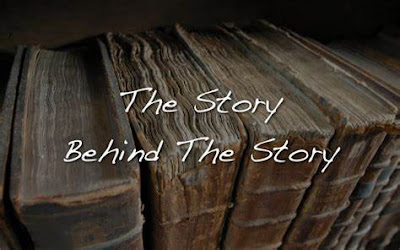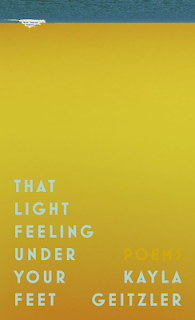Let’s welcome Susan back.
This is not her first visit to the Scribbler
and we are always happy to share her latest news.
If you missed her earlier visit,
please go HERE.
Over to you, Susan.
Susan's
town in northern Wisconsin was an inspiration for the quaint setting of her Kay
Driscoll novels. Like Kay Driscoll in her cozy mysteries, Susan is a retired
nurse who volunteers at her local free clinic. She also writes the Irina
Curtius mysteries which take place in Manhattan.
An avid reader of mysteries, she is a member of Sisters in
Crime, Inc., and the Wisconsin Writers Association.
Her published works include: The Ginseng Conspiracy (A Kay
Driscoll Mystery Book 1), Murder Under the Tree (A Kay Driscoll Mystery Book
2), Murder by Fireworks (A Kay Driscoll Mystery Book 3), Paradise Can Be Murder
(A Kay Driscoll Mystery Book 4), Murder Misunderstood (A Kay Driscoll Mystery
Book 5), The Neighborhood (A Kay Driscoll Mystery Book 6), A Manhattan Murder
Mystery (An Irina Curtius Mystery), Dress to Kill (An Irina Curtius Mystery),
"October 31st", "Midsummer", and "John and Madeline.
Working Title: The Neighborhood
Synopsis: A new City Planner and
his "Stepford wife" move into Kay Driscoll's neighborhood. The city
of Sudbury Falls has a planning committee headed by this newly hired city
planner intent on building a dam in the Sudbury River. The purpose, to create a
lake for waterfront property featuring high-priced, luxury condominiums that
the locals could never afford.
An uproar arises among the
citizens who are passionate about the natural beauty of the Sudbury River. A
newly formed Sudbury River Protection Society attracts Kay Driscoll and her
friends with their “Save the River” movement.
When a murder occurs in the
neighborhood, the unexpected happens. Chief Kirk asks Kay for her help in
investigating the crime. What is up his sleeve? In the meantime Elizabeth's
ex-husband shows up at her book signing after a five-year absence, Deirdre has
a community feng shui-inspired May Day celebration at Planetary Herbals, and
Janey goes on her first date.
Welcome back to Kay's world.
The Story Behind the Story: Why did I write this mystery? The truthful reason I wrote this sixth Kay
Driscoll mystery is simply because writing seems to be in my blood. I can't
imagine not writing. And I write to entertain, mostly through the characters, the
plot of the story, and dry humor.
My
first book was released in January 2014 by a Canadian publisher. I started
writing the mystery five years previous to the publication date taking a number
of writing classes.
What
inspired the book? The environment is important for everyone. And not to be
destroyed for the chosen rich. This idea became a focus for The Neighborhood.
The book focuses on a small, but important level, on the lives of those living
in the fictional Sudbury Falls. In real life, big companies, businesses, and
industries are creating havoc in our environment and on the world.
Author Page on Facebook:
https://www.facebook.com/TheGinsengConspiracyBySusanKBernhardt
A question before you go, Susan: Can you tell us the perfect setting
you have, or desire, for writing? Music or quiet? Coffee or tequila? Neat or
notes everywhere?
I've always been fascinated with
romantic ideas of where authors write. Perhaps I had seen too many movies, but
when I became an author, I pictured myself looking out of a second floor
palazzo window onto the Grande Canal in Venice, with a glass of Prosecco beside
my desk, pounding away on the keyboard.
Three years ago my husband and I
did visit Venice and we stayed in a palazzo but there wasn't a balcony and if
there had been, it wouldn't have looked out over the Grande Canal. But we did
share a bottle of Prosecco in our room. If only I had brought my writing along.
Or I might be in NYC working in an
Upper West Side Brownstone where I could practically touch the tree outside of
my window. In between paragraphs, I'd watch the hustle and bustle of the street
below with the only things on my mind being my novel and trying to decide which
neighborhood eatery I would try that evening, Indian, Thai or Italian.
I've sort of lived out this
dream...lol...writing a mystery where part of it takes place in this exact
setting, a Brownstone on the Upper West Side of Manhattan.
A Victorian home, a "Painted
Lady" in San Francisco would be cool, looking out over the San Francisco
Bay, hearing the cable cars in the distance and the seagulls above. I'd try to
finish a chapter before meeting friends in North Beach at a coffee bar.
We have lived in the San Francisco
Bay area and often times walked the different parts of the city including North
Beach. But I wasn't writing then.
I recently was able to live out
one of my romantic ideas of where to write. I went on holiday with my husband
to the Caribbean and wrote on the powdery, white beach where I could look up
and view the surreal, blue-green water. Between writing, I went for a swim and
saw dozens of beautiful tropical fish in the crystal clear waters. Now that is
romantic and I lived it completely! Paradise Can Be Murder (A Kay Driscoll
Mystery Book 4) is the result.
But most of the time, I'm at home
sitting on my sofa in our living room with my laptop on my lap typing away.
There's a wall-sized window where I can look out over our neighborhood or watch
the birds build their nests in our yew tree in the spring. I have a little
make-shift side table, a Red Wing crock where I keep my teacup filled
throughout the day. And when I'm not watching my carbs, I often have a scone
sitting next to the teacup slathered in lemon curd and clotted cream.
These all sound like enjoyable
creative settings, Susan. Thanks for being our guest this week. Wishing you the
best of luck with the new novel and wishing you continued success with your
writing.
And as usual, a tremendous thank you
to our visitors and readers.
A question for you: What is your all-time favorite book you’ve read many times?






















.jpg)



.png)


